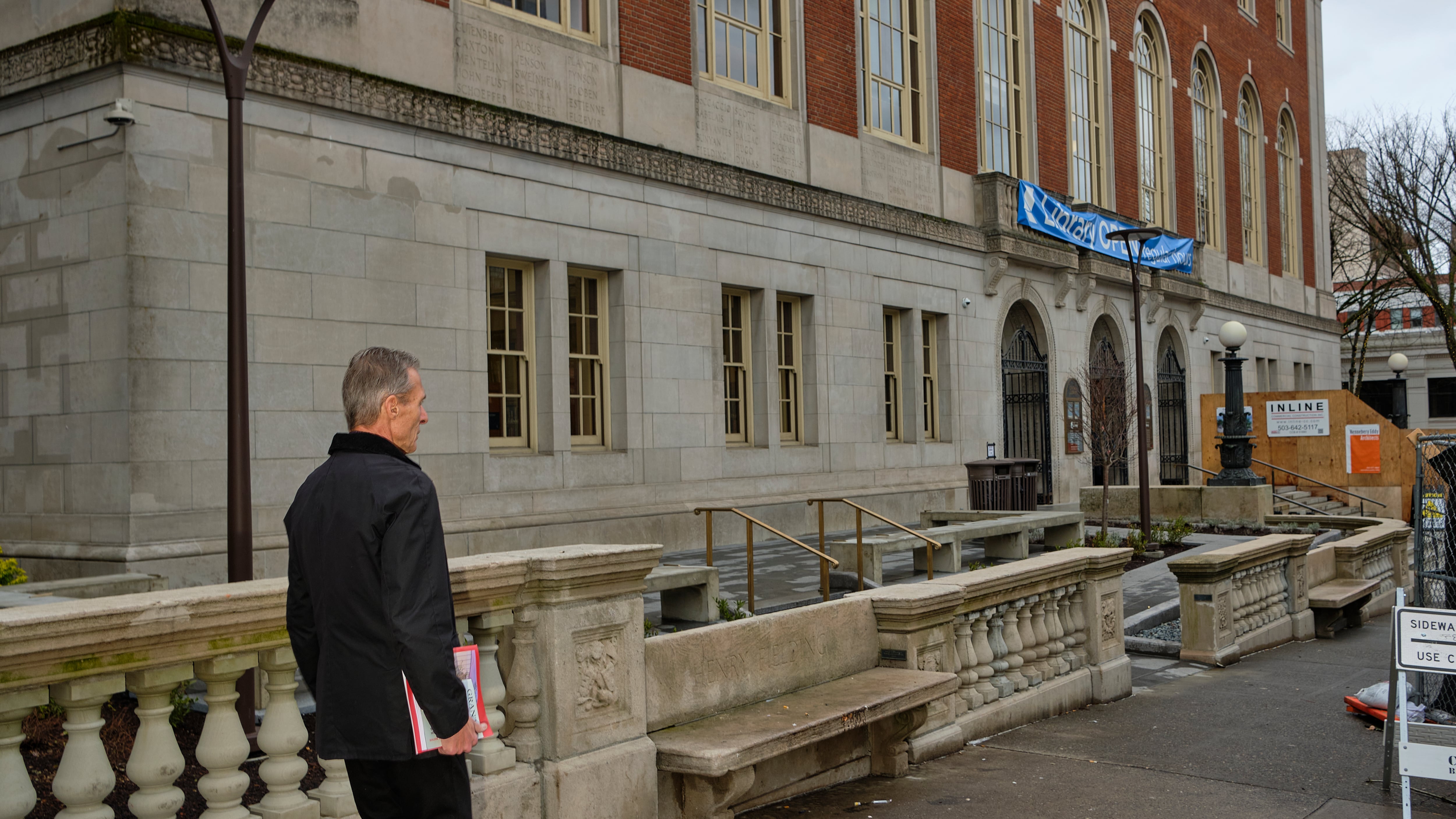The commander of the Portland Police Bureau’s Central Precinct has advised Multnomah County officials to install metal detectors at the Central Library, remove exterior benches, and disable Wi-Fi outside the building after a fatal shooting this month on the library’s front steps.
That advice, issued by Cmdr. Brian Hughes on July 7, comes amid a pressure campaign by the Portland Metro Chamber to compel county leaders to crack down on drug use and weapons at the iconic Central Library.
“The current environment reflects a troubling refusal to acknowledge the severity of what is occurring both inside and around the library,” writes Jason Gerlt, chair of the Downtown Retail Council, a subset of the Metro Chamber. “The county’s repeated attempts to distance itself from these safety failures—while downplaying law enforcement as a necessary partner—have led to harm, distrust, and a visibly deteriorating public space.”
Gerlt, who is also the general manager of Southpark Seafood, wrote that the July 1 killing reflects the violent and hazardous conditions that have been permeating downtown for quite some time—and the failure of the county to address such conditions. In particular, he alleges that library staff is reluctant to call the cops on disruptive and dangerous people inside the Central Library.
“Law enforcement must be treated as a critical partner, not a last resort or political third rail,” he wrote. “If security and library staff are discouraged or outright prevented from calling for help, then we are not just failing public safety—we are enabling its collapse.”
A spokeswoman for the Multnomah County Library told WW the problem stems in part from slow police response when employees do dial 911. Library officials emphasized that they are committed to safety and, contrary to the allegation that they resisted police assistance, have in fact asked for more patrols.
“Without action and prioritized response from Portland Police Bureau when we call, the surrounding area will not improve,” the spokeswoman said. “What we have asked for are more police patrols on the perimeter with a daily walk-through, and timely responses to our calls for help.”
The immediate trigger for the dispute was the July 1 shooting death of Douglas Ivers, 50, allegedly by Hassan Muse, 26. (Muse has pleaded not guilty to second-degree murder.) But concern about fentanyl use and violent behavior by library patrons has been growing for at least three years.
WW reported in 2022 that library employees were complaining about being assaulted among the stacks. And when county officials called in a federal agency to examine fentanyl use in library restrooms, it found that one-third of employees interviewed reported at least one exposure to illicit drugs through the air or uncovered skin in the 12 months that ended last June.
Hughes, the police commander, suggested the library create an annual membership system that included a code of conduct. Library officials say they already have a code of conduct.
Library officials say they have also followed through on one of Hughes’ recommendations. On July 10, the Central Library disabled Wi-Fi service after library hours.
Weakening or disabling WiFi signal strength so it can’t be used outside a building is an increasingly common practice by Portland restaurants and coffee shops that seek to discourage loitering.
“While the enhanced signal served a purpose during the COVID era,” Hughes wrote, “it now functions as a draw for individuals with no intent to use library services.”

